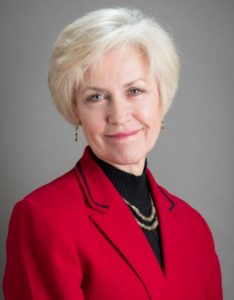In a special election on May 17, voters will consider an increase to their primary property tax rate.
The birth was a two-step process: First, voters had to decide if they wanted to form a community college district; second, they had to decide to fund the district with property taxes.
Both measures passed and CCC was created to serve the residents of Coconino County.
However, that was not the end of the story – only the beginning. A challenge came about with the formation of the college that has grown as the college has grown over time. The percentage of property taxes to help run the college is, by far, the lowest offered to any community college district in the state of Arizona. Initially, the college was able to overcome that challenge with the assistance of state funding and fees from tuition. In the last 30 years, state funding has diminished considerably. Members of the governing board and the college communities have met the challenge of that initial underfunding with incredible efforts to do “more with less.”
Before she left office, state Sen. Sylvia Allen, after seeing the amazing stories of success being experienced by CCC students, decided to take forward an amendment to state law in 2018 that would allow community colleges to ask the voters to decide if they would support an increase to their primary property tax rate in order to bring the college somewhat closer to parity with other community colleges in the state. The governing board decided during a December 2021 meeting that now is the time to ask.
In a special election on May 17, voters will consider an increase to their primary property tax rate. If the voters approve, the tax rate will still be below all the other community colleges; however, it will provide an opportunity to meet many of the demands for career and technical programs and short-term training requested by business and industry throughout Coconino County.
Dr. Nathaniel White, chair of the CCC District Governing Board (DGB), put it this way: “Local pressure is ever increasing for new areas of workforce training and advanced general education. The basic funding source for Coconino Community College is through the county primary tax dedicated to the college and initially set when the taxing district was formed 30 years ago. Our tax rate is the lowest in the state by nearly three times. Balancing fiscal responsibility with the need and opportunities for serving Coconino County, the DGB has elected to provide the citizens a chance to reset the primary tax rate. The new rate would still remain the lowest in the state and yet provide dependable funding to fulfill the college’s mission.”
White added that a political action committee, “Supporters for a Thriving CCC,” has retained the consulting services of Strategies 360 to assist the PAC in the election effort.
According to the resolution, the funding is intended for, but is not limited to, the following programs:
- Initiate new career, technical education and training programs that prepare Coconino County residents for jobs in Coconino County.
- Develop new programs to support veterans’ training for civilian jobs.
- Develop new programs to train and re-train Coconino County workers, in collaboration with Coconino County employers and expand current job training programs.
Expand career and technical training degree and certificate programs:
o Additional Healthcare Programs
o Ultrasound/Sonography Technician
o Surgical Technician
o Respiratory Therapist
o Anesthesia Technician
o Electric Car and Charging Station Technician
o Manufacturing Technology
o Police Academy
o Paramedic
Continue and expand career and technical education programs established with one-time funding:
o Automotive Technology
o CDL (Truck Driving)
o Early Childhood Education Certificate (Preschool Teachers)
o Assisted Living Caregiver Certificate
o Google IT Support Professional Certificate
o Amazon Web Services Certificate
o Cyber Security Associate of Applied Science
o Increased Number of Students in Nursing Program
o Marine Maintenance Technician
o Welding Certification
o Heating, Ventilation, and Air-Conditioning (HVAC)
Expand the scholarship program
Enhance educational services throughout Coconino County, including communities such as Page, Tuba City and Williams
By Colleen Smith
For more information about the initiative, called Proposition 438 on the ballot, visit www.coconino.edu/prop-438, or www.yesforcoconino.com. FBN
Colleen A. Smith, Ph.D. is the president of Coconino Community College.





